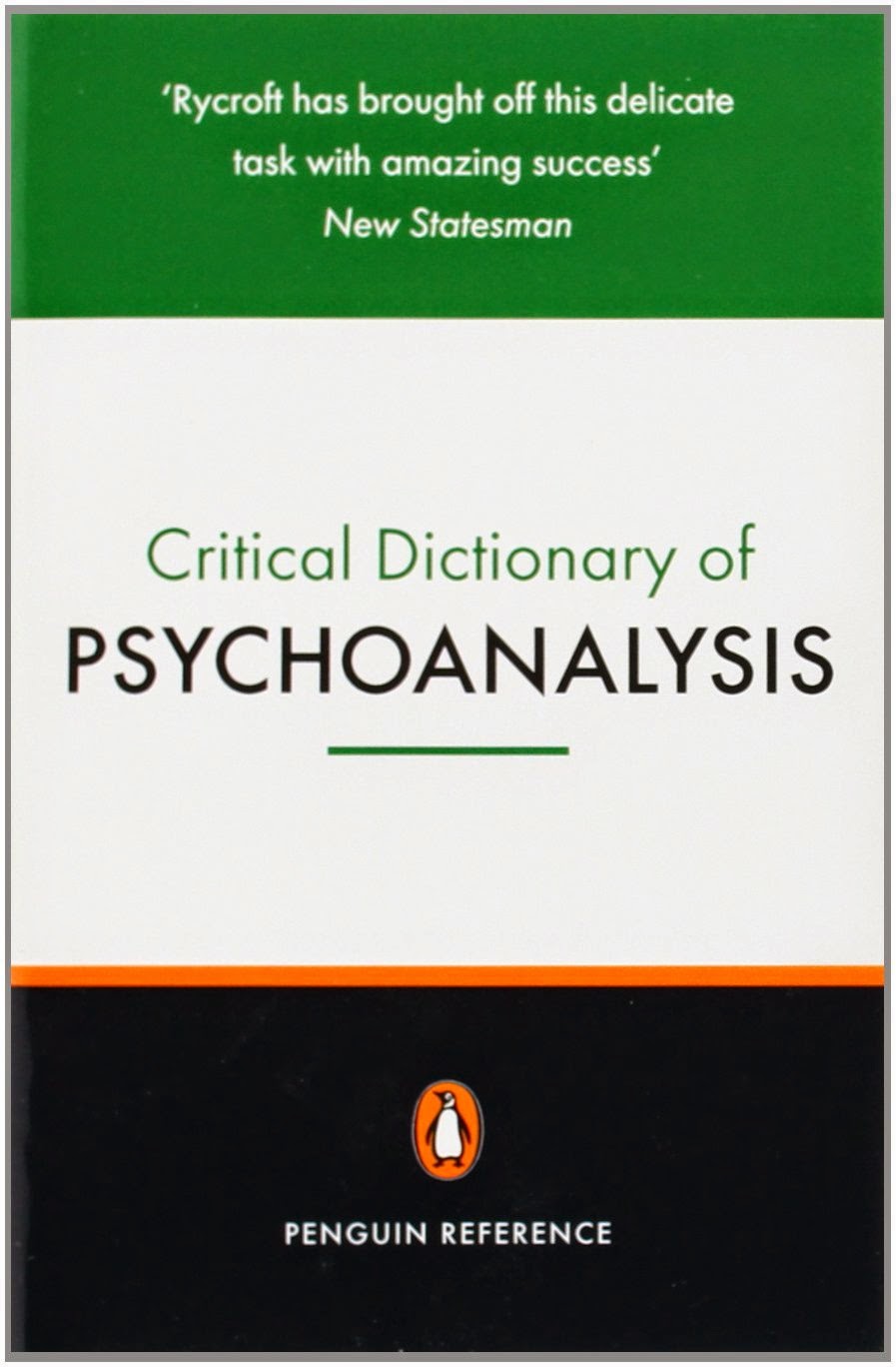A Critical Dictionary of Psychoanalysis
Charles Rycroft's 'Critical Dictionary of Psychoanalysis' is an established reference work providing clear definitions and critical discussions of the technical terms used in psychoanalysis. "An accurate and witty guide to the meaning of psychoanalytic terms ... [it] also explains the various controversies which have disfigured the psychoanalytic movement and which are such a puzzle to those outside it. For anyone concerned with psychoanalysis and its offshoots this is an indispensable book" Anthony Storr
Some sample entries:
EGO BOUNDARY
Topographical concept by which the distinction between self and not-self is imagined to be delineated. A patient is said to lack ego boundaries if he identifies readily with others and does so at the expense of his own sense of identity. Analysts who hold that the infant lives in a state of primary identification with his mother, postulate the gradual development of an ego boundary, i.e. the discovery that objects are not parts of itself.
IDENTITY v. ROLE DIFFUSION
The fifth of Erikson's eight stages of man. It corresponds to adolescence and early manhood, during which, according to Erikson, the individual has to redefine his identity, particularly in relation to the parents he is growing away from and the society he is growing into. `Role diffusion' refers to the adolescent tendency to `over-identify, to the point of apparent complete loss of identity, with the heroes of cliques and crowds' - Erikson (1953).
REALITY PRINCIPLE
According to Freud, mental activity is governed by two principles: the pleasure principle and the reality principle, the former leading to relief of instinctual tension by hallucinatory wish-fulfilment (see also hallucination), the latter to instinctual gratification by accommodation to the facts of , and the objects existing within, the external world. According to Freud's original formulations, the reality principle is acquired and learned during development, whereas the pleasure principle is innate and primitive.
 |
| Bartleby, the Scrivener: “I would prefer not to.” |


